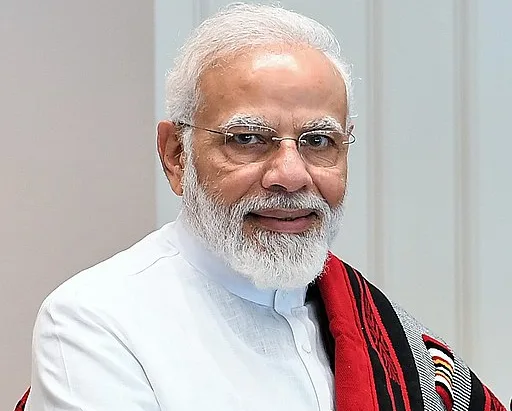In his landmark trip to Kyiv, Prime Minister Modi invites President Zelenskyy to India, with Zelenskyy expressing eagerness to visit
In a historic move, Indian Prime Minister Narendra Modi made an unprecedented visit to Kyiv on Friday, marking the first time an Indian Prime Minister has travelled to Ukraine since it gained independence over 30 years ago. During his nearly nine-hour visit, Modi engaged in extensive discussions with Ukrainian President Volodymyr Zelenskyy.
At a media briefing following their talks, Indian External Affairs Minister S. Jaishankar confirmed that Prime Minister Modi had extended a formal invitation for President Zelenskyy to visit India. The invitation was part of a broader diplomatic engagement aimed at strengthening ties between the two nations.
Embed from Getty Images“It’s significant that our Prime Minister has visited Ukraine for the first time since 1992. It is natural on such occasions that he extends an invitation, which he did in this case,” Jaishankar remarked. He expressed hope that Zelenskyy would accept the invitation at a time convenient for him.
President Zelenskyy, responding positively to the invitation, expressed enthusiasm about visiting India. “Yes, because when you begin a strategic partnership, and you start some dialogue, you don’t need to waste time and do a big pause,” Zelenskyy stated. He emphasized the importance of India’s support for Ukraine and his eagerness to meet with Modi and other Indian leaders. “I read a lot about your big and great country. It’s very interesting. I very much need your country on our side,” Zelenskyy added, signaling his willingness to travel to India as soon as circumstances permit.
In addition to discussing diplomatic relations, the two leaders also touched on the topic of energy trade. Jaishankar noted that while the conversation about India’s energy imports from Russia was not the primary focus, it was addressed in the context of the global energy market. India has emerged as a significant buyer of Russian crude oil, accounting for a substantial portion of its total oil imports. In July, India imported $2.8 billion worth of crude oil from Russia, making it one of the top importers of Russian oil after China.
This shift in India’s oil import strategy has been influenced by the discounted prices of Russian oil, a result of reduced European purchases following Russia’s invasion of Ukraine in February 2022. Previously, Russian oil constituted less than one percent of India’s total oil imports, but it now represents nearly 40 percent.
Analysis:
Political Perspective: Prime Minister Modi’s visit to Kyiv and the subsequent invitation to President Zelenskyy underscore a strategic move in India’s foreign policy. By engaging directly with Ukraine, India signals its willingness to strengthen bilateral relations amid global geopolitical tensions. The invitation to Zelenskyy reflects India’s intent to play a more active role in supporting Ukraine and potentially expanding its influence in Eastern Europe. This diplomatic gesture aligns with India’s broader strategy of building strategic partnerships across different regions, while also navigating its complex relationship with Russia.
Social Perspective: The diplomatic engagement between India and Ukraine highlights the role of international relationships in shaping societal perceptions. Zelenskyy’s positive response to Modi’s invitation emphasizes the value of diplomatic visits in fostering mutual understanding and cooperation. For Indian and Ukrainian citizens, this interaction represents a significant step towards deeper cultural and economic connections. The visit also reflects India’s increasing involvement in global issues, influencing how both countries view each other and their place in the international community.
Racial Perspective: While the visit itself does not directly address racial issues, it is part of a broader context of how nations with diverse populations engage with each other on the global stage. The interactions between Indian and Ukrainian leaders might influence how diaspora communities from both countries perceive their respective governments’ foreign policies. Additionally, the positive engagement could impact the views of these communities towards each other’s countries and their diplomatic relations.
Gender Perspective: The focus of the visit and the discussions did not specifically address gender issues. However, the strengthening of diplomatic ties and international cooperation can have indirect effects on gender-related policies and initiatives. As both nations deepen their engagement, there could be opportunities for collaborative efforts in gender equality and women’s empowerment programs, reflecting the broader impacts of diplomatic relations on various social issues.
Economic Perspective: India’s growing reliance on Russian oil has economic implications that were addressed during the talks. The significant increase in oil imports from Russia reflects a shift in global energy markets and highlights India’s strategic responses to changing geopolitical dynamics. This economic aspect is crucial for understanding the broader context of India’s foreign policy and its implications for global trade and energy security. The discussion between Modi and Zelenskyy on energy trade also points to the intricate balance India must maintain in its international economic relations.
